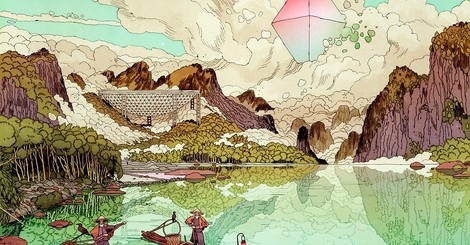Your podcast discovery platform
Curious minds select the most fascinating podcasts from around the world. Discover hand-piqd audio recommendations on your favorite topics.

piqer for: Global finds Technology and society Health and Sanity
Nechama Brodie is a South African journalist and researcher. She is the author of six books, including two critically acclaimed urban histories of Johannesburg and Cape Town. She works as the head of training and research at TRI Facts, part of independent fact-checking organisation Africa Check, and is completing a PhD in data methodology and media studies at the University of the Witwatersrand.
Which First Contact? China's Giant Radio Dish VS The West's Continued Alienation From China
The science articles in The Atlantic are generally a source of joy and knowledge — they rank among the finest contemporary popular-but-technical science reads in mass media today. I was particularly looking forward to Ross Andersen's long-form piece on the giant new 'space radio' (aka the largest radio dish in the world, capable of hearing space whispers), which is nestled between the limestone hills of the karst. Here, the writer explained, China was finally looking beyond its borders and into the wider universe — its technology making it possible that China might even be best-positioned to make First Contact, if such an event was ever to happen.
This is a wonderful premise. Except most of the interesting stuff, about the space radio at least, is preceded by fully half of the article talking about China as if it is or was some giant alien culture itself. So: less technology, more anthropology, peppered with frequent narrative metaphors related to science fiction stories or films about aliens, in turn centered around an interview with iconic Chinese Sci-Fi writer Liu Cixin.
While Liu's thoughts on the nature of civilisation, power, and the universe were fascinating, the story seemed to relegate China to the realm of the novel. It seems a shame that it was necessary to reduce the kaleidescope of China to potted paragraphs of history and pop culture references (personally I would have added Kim Stanley Robinson's The Years of Rice and Salt, which at very least positions a world narrative not dominated by the West). And, also, the radio telescope is both immense and immensely cool, and I would have liked to have learned a great deal more about the structure and its staff, and less about what the Western author thought of Chinese scenery and society.
As an African journalist I am constantly aware of how my own continent is othered in Western media. Here I feel technology was used as an excuse to subtly do the same in China, and it was unexpected and a bit disappointing.
